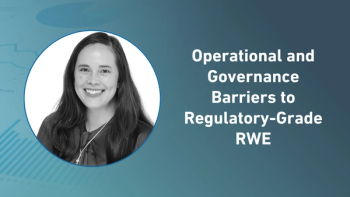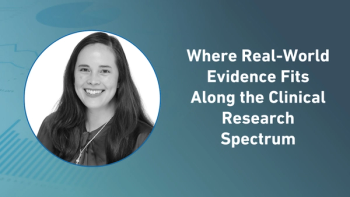
- Applied Clinical Trials-11-01-2022
- Volume 31
- Issue 11
The State of Data FAIRification in Clinical Research
Study shows more support is needed for clinical teams to ‘FAIRify’ their data.
In 2016, a diverse group of researchers came together to publish the FAIR Data Principles. Their goal? To push science further, faster by improving the infrastructure supporting the reuse of scholarly data. The FAIR principles call for proper data management to speed up knowledge gathering and propel innovation forward.
As clinical trials increase in data volume and complexity, the FAIR principles and guidelines have been widely adopted since publication. FAIR is a core element and driver for the digital transformation of drug development and life sciences R&D. Here’s what to know about the current adoption of FAIR principles in clinical research today.
Methods for implementation
FAIR is not a standard and the principles offer no explicit guidance on how researchers should use the procedures for FAIRification. Many different approaches exist regarding how to FAIRify data. In order to guide researchers during the process,
To ‘become more FAIR,’ one needs to make sure that collected data and associated metadata are both readable for humans (the study team or other researchers that might want to reuse the data) and machines (algorithms that process and analyze the data). Therefore, when incorporating the FAIR principles into a new trial’s setup, specific emphasis should be placed on amplifying the ability of machines to find and use data automatically—while supporting data's ability to be reused by individuals.
State of the industry
Last year, a team of researchers at Castor and Amsterdam UMC set out to get a reading on the industry’s perception and acceptance of FAIR. A questionnaire was distributed to researchers and support staff across six Dutch University Medical Centers and users of Castor EDC. The questionnaire assessed the individual’s perceptions and behavior concerning the FAIR Data Principles.
In May 2022,
Of those surveyed, just over 1 in 3 researchers said that they can make their data more FAIR on their own. But if they received help to follow the principles more closely, more than 4 in 5 researchers reported success. This statistic confirmed researchers are willing to make their data FAIR if they received the right resources—but more help is needed to further implement the FAIRification approach.
The next steps
One of the study's most interesting statistics revealed that almost 95% of researchers are aware of the usefulness of their data being FAIR for others. Even more interesting was that almost 90% are willing to FAIRify their data—given the right resources and support. The critical resources needed? Help from experts, budget, and time.
The study showed that when researchers are required to spend their own money and time on the FAIRification process, their intention and motivation significantly decrease. The industry needs to increase awareness of the short-term and long-term value of FAIR data and metadata and take the principles into account when planning (and budgeting) future studies. More help from institutions and funders is required to develop FAIRification training and tools. They also can financially support researchers and staff throughout the process. They could also appoint support staff and semantic data experts to help researchers with the FAIRification process.
If study teams think of FAIRification before they start a trial—and then receive the support they need to make their data FAIR—future research will be fueled by human- and machine-readable data and metadata. That data can be re-used by others and combined with other data, leading to exciting new insights. FAIRification therefore holds the promise of revolutionizing research science and greatly benefiting the entire research community and patients worldwide.
Martijn Kersloot, PhD, assistant professor in medical informatics at Amsterdam University Medical Centers and a product owner at Castor
Articles in this issue
about 3 years ago
Mobilizing and Maintaining Clinical Trials in Midst of Warabout 3 years ago
The Implications of Inflation for Drug Developmentabout 3 years ago
When Does Patient Centricity Equal Burden?about 3 years ago
Applied Clinical Trials November 2022 Issue (PDF)over 3 years ago
“Culture of Quality” In Actionover 3 years ago
FDA Expands Oversight of Cell and Gene Therapiesover 3 years ago
Anticipating Careless Responders in Survey Design and Analysisover 3 years ago
Towards a Global Implementation of eConsent in Clinical TrialsNewsletter
Stay current in clinical research with Applied Clinical Trials, providing expert insights, regulatory updates, and practical strategies for successful clinical trial design and execution.




